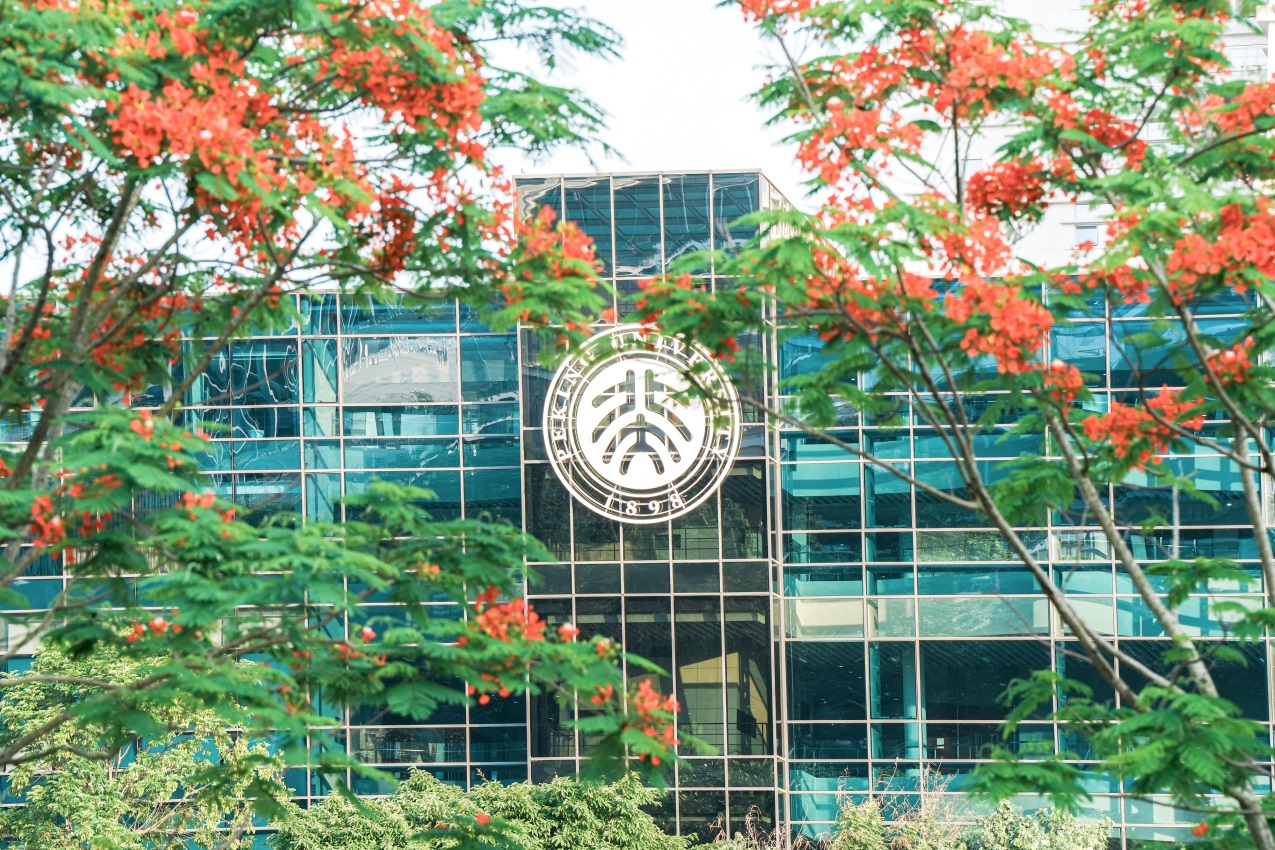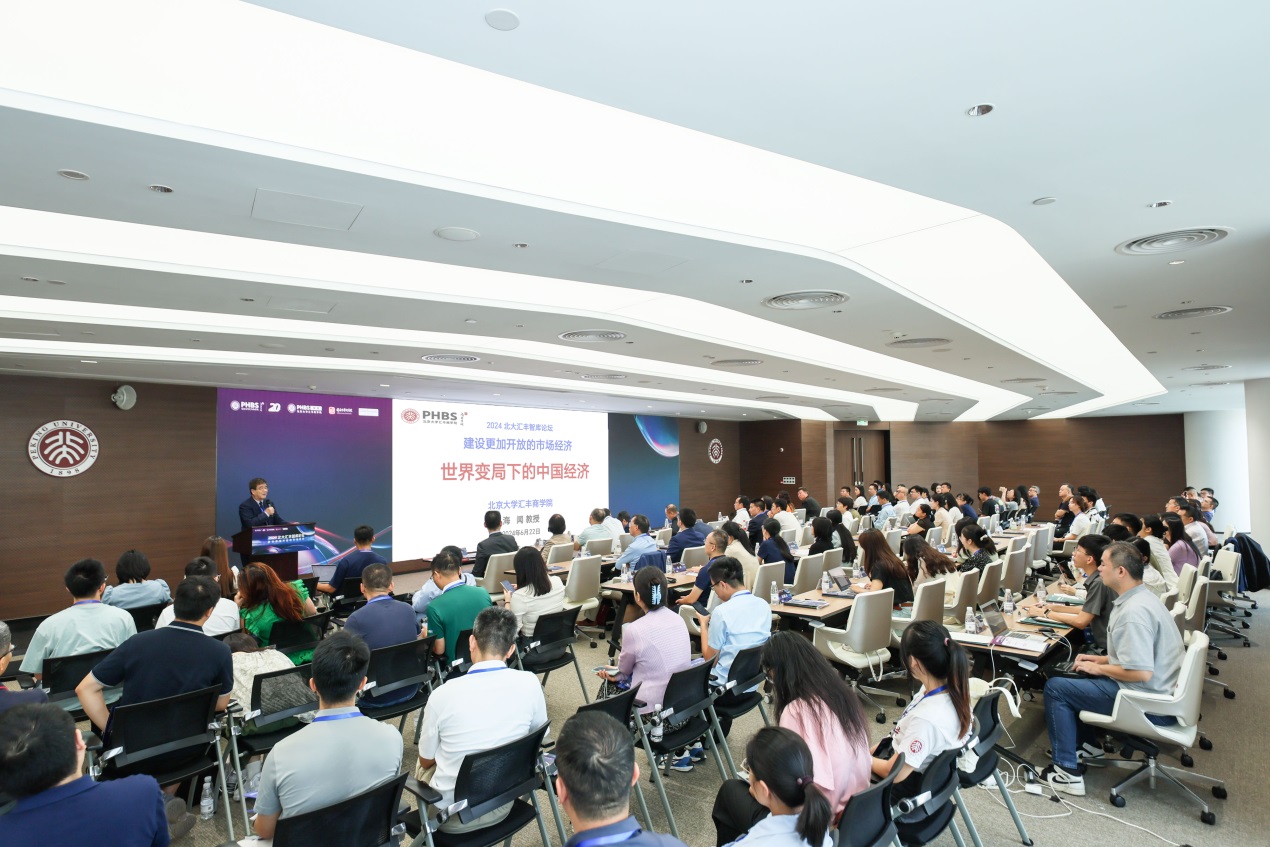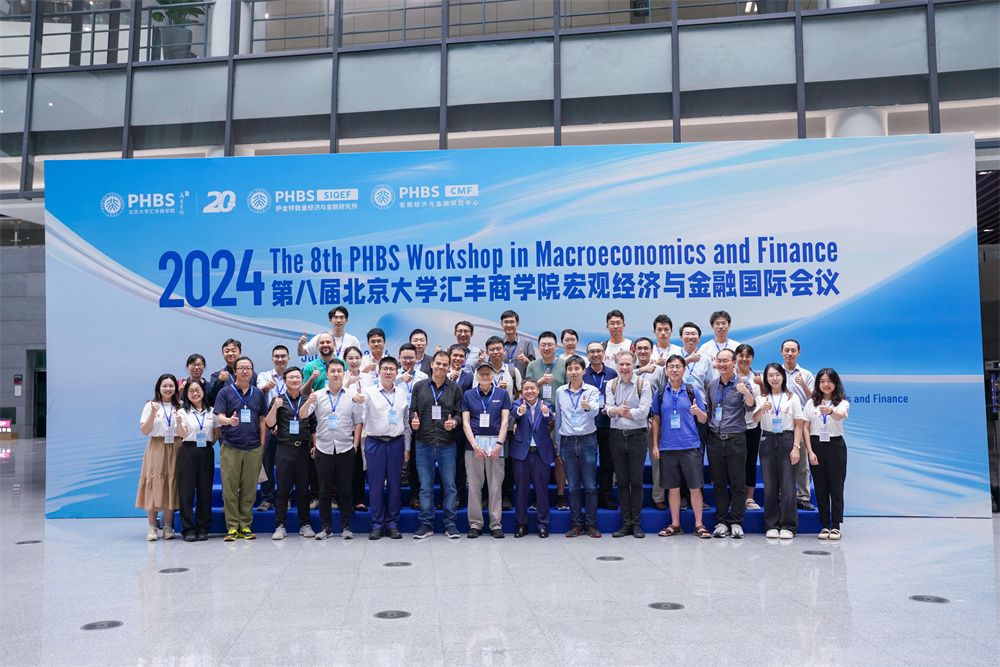Christopher Pissarides is Professor of Economics at the London School of Economics and Political Science. His research focuses on macroeconomics, labour economics, economic growth, and economic policy. In 2010, along with Peter Diamond and Dale Mortensen, he received the Nobel Prize in Economics. In the interview with
PKU Financial Review, Professor Pissarides states that, as human beings, we don't only want to work with technology.
PKU Financial Review: You won the Nobel Prize in Economics for search matching theory, which is widely regarded as the best description of labor market friction. However, the labor market in both China and the US has some characteristics that do not exist in the past, such as “burnout”, which is called “laying flatism” in China and “quiet quitting” in the US. In your theory, how do you explain this labor market friction?
Christopher Pissarides: First, we have to understand what such a magic theory is. It doesn't provide answers by itself. It’s a framework that we can use to analyze a labor market, and it's also not immediate as to how we're going to analyze labor market. You know like when you see some new phenomenon, you don't immediately say, “oh yes, that's what it is”. You know you need to get better data you need to study it carefully.
The whole idea of frictions that introduced initially in the way that we demonstrated that both I and others who worked on it and students that followed that it's a framework, that helps you understand labor markets was by first claiming that the traditional supply and demand analysis in labor markets without fictions. It doesn't explain many facts like we see in labor markets. And then demonstrating this new framework can explain many features of the data that were there. But it something that took many years, and there are still things that there is no perfect explanation. The theory has been pushed forward.
There was a period of it which the friction was stronger for some reason or another, and then now there is a relaxation of the friction. And therefore more people are leaving their jobs because when they get a high friction to quitting and getting out of the job, then people are more likely to stay where they are. That’s a possible explanation then once you stay that possible explanation, then the next step is to get the data. And if you find them, then you test whether that relaxation, given what we know about the impact that they have on quitting behavior, can explain the quitting behavior that we are seeing.
PKU Financial Review: Recently you mentioned that AI technologies like ChatGPT may make working 4 days a week possible. It could take away lots of boring things that we do at work, and leave only those interesting stuff to human beings. But for those who are not very technique oriented, they may be at higher risk of being laid off. How do you think of this situation?
Christopher Pissarides: I wouldn't put it like that actually the way you did. Many jobs will survive in the future and will probably grow even though they are not technique oriented. Admittedly they will not be the highest paid job in the market, but remember that, as human beings, we don't only want to work with technology. We have many emotional needs, human needs, care needs, those cannot be mechanized. There are illnesses around, you might feel ill, you need someone with experience to take care of you, and not only a doctor. The medical part is a small part of care, then after care, those jobs will survive and grow. Because as societies became richer, then we have more demands about services.
Now what they referred to with the ChatGPT and other technologies of this kind is that they are evolutionary technologies that they will make a lot of difference to the way that we process data, and there are many many people employed in the market whose job is to process data, write reports. How did lawyers behave? For example, when now ChatGPT gives you that in an instant, they're employing young people fresh out of graduate school, they're called “paralegals”. They spend hours in archived rooms, in libraries, going through very thick books that document every tale that happened in the older days. They would go through long books and read them, then after that, they would use a searching engine like Google, Baidu or whatever they want to use. You could be very pessimistic and say "oh my god, we're going to lose so many jobs that counters do, lawyers do, public service workers do". You know those who work in ministries, efficiency will go up if we use the technology to get the output that they are producing. And therefore we have free time and we have more money, because our productivity will be higher. And therefore we could work less and enjoy life more.
Then the next question is who is going to get the money? I think that's the most difficult thing to deal with in today's labor markets. That’s where training becomes very important. lifelong learning making sure that university students know what jobs are likely to be affected by the technologies, and adapt to their studies accordingly. That’s why the work that you do on skills, what will be required and how to acquire the training. That’s really what's occupying us currently of these skills for the future of work.
PKU Financial Review: The reason why I raised this question is because our school is HSBC Business School. As they graduates each year, many of them will become financial analysts or investment advisers in the future. But now some people think that maybe in the future, ChatGPT or robo-advisor will replace their work of financial analysts or investment advisor. So how do you think of the impact of AI on financial sector specifically?
Christopher Pissarides: I think the best times for jobs in the financial sector are probably over in the sense of numbers. I don't think the financial sector of financial services will be expanding because technology is addressed to them. There is already a lot going on and in fact it's one of the sectors where technology started early on. If you think of ATM machines, payments done online and using mobile devices like Alipay, Wechat pay, Apple Pay, you know that we all use where those have removed a lot of jobs in the financial sector. About 20 percent fewer people are employed in London where I live. In the advanced financial sector, banks are just closing on a daily basis. Now you have the ATM taking their jobs, some of those have adapted their roles within the organization. There is now better service provided such as relationship managers that would dress any questions and any problems directly, whereas you couldn't do that before.
There is restruction going on. I agree that the financial sector is not likely to be expanding, and expanding will be more difficult to get the jobs that are remaining. Because there are jobs that involve managerial abilities as well, not only the ability to trade assets. There is now an optimistic side to it. If you want to train to go into finance, learn some techniques and some technology, learn how to process data.
You can be cleverer than others in using your conservative techniques and do better, but you won't be able to do it just by intuition and reading newspapers and talking to others in the market the way it was done. Whatever the technology will flourish, many things that people want that we still haven't thought about, and which could be very beneficial to whoever thinks about them first.
20 years ago, some people had the idea of the platform retail, platform economy describe things on the internet. As well as you can do it, start selling on the internet, find ways of doing it in a way that's convenient for the person. They also recommend good products they want. For example, I like drinking coffee but I wouldn't drink any type of coffee that there is there. I buy my coffee from one of these platforms. If I type into the search engine “coffee”, it immediately comes up with those without similar to a type of coffee that I don't like. Therefore I very quickly click there, it takes you about 5 minutes to order. It’s a great idea, there are many other great ideas like this, but I don't know what they are.
PKU Financial Review: Some people believe that flexible employment may be the future trend of labor market, which is that people are not employed by one certain company but serve for several employers. It is absolutely beneficial for employers, but it may bring about uncertainty for employees. How do you think of this future trend of flexible employment?
Christopher Pissarides: Work is so important for people. We spend a lot of time there, our livelihood depends on it. Anything that is new and we are not sure about certainties, and we're worried about it. But in fact, if you ask people how well do they feel at work? Are they happy in what they are doing? What could improve their work? Then they will mention flexible work in time, flexible arrangements.
The other one they mention very frequently that would make them happier work is autonomy, and good communication with both line managers and people below you in the line, which also involves flexibility. If you communicate well, if you can make your own decisions about the work, you do it is flexibility.
Companies that succeed in providing that flexibility are very successful, employees are very happy working with them. They are not worried about a job and informal section sort of socializing. We’re promoting good work, and this is one of the main features that good work has. I think people tend to worry much more than that is justified by data and experience. It is the function of employers. I guess this academic is working in that area to convince people that they shouldn't be worried about many things. Employer should be more flexible, and it should be good both for the employer and the employee.
PKU Financial Review: Economic growth is one of your most important research areas. When ChatGPT first came out, everybody was discussing that it may bring about another technology revolution, but it turns out that it hasn't. In the current stage of low growth worldwide, how do you see the impact of technology on economic growth? What is the core driving force of economic growth?
Christopher Pissarides: Do not expect to see growth the way China saw in the 30 years after opening up, or Europe saw in the middle of the 20th century, or America a little bit earlier. Because the growth that they had at that time was through the expansion manufacturing, and the higher income that broke with it, and the big demand for manufacturing goods that we have at home.
I mean just look around you at home how many consumer durables you have. They will have a car, dishwasher, vacuum cleaner and telephone. No home has all those things at the beginning of the 20th century, we relied on human labor. By the end of the 20th century or at least by 1980, the majority of at least middle class European and North American homes were full of these things. Now most of you are occupied with all these durables, someone had to produce it.
But do we expect though lower growth trades where there's a remaining quality of services that we get is going to be a service economy. There will be improving the quality of services, there will be more new services coming up, like I told you before. Just as a business school person to think of what new services might have a demand in the market. There's no doubt that there will be more.
Do not think of growth just as a percentage number. Sometimes we're saying our growth in Europe this year is going to be 0.3, or maybe 0.5 if it is good. To me, it makes absolutely no difference if you're going to 0.5. Just think more of things that give you the quality of growth. Are you improving wellbeing? Are you making people happier at work? Ask us these things and if I come to succeed in doing it, then that's what's good.
When you think of electric vehicles, for example, not so long ago, we were measuring output of the car by how many cars you produced. In global, they were saying the most successful countries are Japan and Germany, and now people are saying China has already overtaken Germany in exports of vehicles. This was actually a report on our TV news, either yesterday or before, saying the Chinese car in this output now it's all elect vehicles. That's going to make a lot of difference in environments and going to improve the quality of life, not “oh my god, they're exporting more cars than Germany”. They're still exporting a lot of the luxury traditional vehicles.
The most serious TV news program that I watched would put that right at the end. Others wouldn't put it at all, they would just count numbers. So we should forget a little bit about numbers and think of quality.















